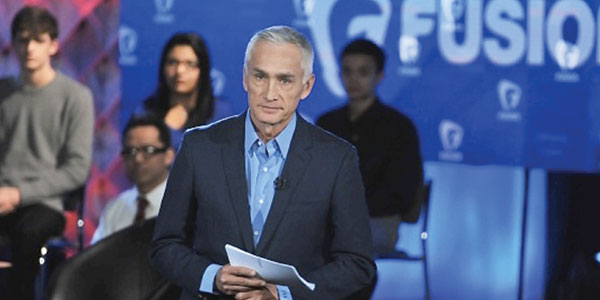
Decir que los periodistas debemos tomar partido y dejar de ser neutrales parecería ir en contra de lo que aprendimos en la escuela. Los periodistas, nos dijeron muchos maestros, deben ser neutrales y objetivos. Pero, creo que la única forma de cumplir con nuestra principal responsabilidad social — que es cuestionar a los que tienen el poder — es dejando a un lado la neutralidad.
No tengo nada en contra de la objetividad — hay que reflejar la realidad como es y no como quisiéramos que fuera. Si es rojo decimos “rojo”, y si murieron 15, decimos “15”. Lo básico es responder al qué, dónde, cuándo, cómo y por qué. El reto viene después.
¿Cuándo debemos tomar partido los periodistas y dejar la neutralidad a un lado? He identificado seis áreas. No debemos ser neutrales en casos de racismo, discriminación, corrupción, mentiras públicas, dictaduras y violaciones a los derechos humanos. No podemos tratar igual a un dictador que a una víctima de su dictadura. No debe ser lo mismo entrevistar a Donald Trump — que hizo comentarios racistas sobre mexicanos y musulmanes, e insultó públicamente a varias mujeres — que a las personas que ofendió. Dar los dos puntos de vista para equilibrar la información no nos lleva necesariamente a la verdad.
Los mejores ejemplos de periodismo que tenemos en Estados Unidos ocurrieron cuando los reporteros tomaron partido: los periodistas del Washington Post que obligan al presidente Richard Nixon a renunciar; la postura de Walter Cronkite contra la guerra de Vietnam; y los reporteros del Boston Globe contra los sacerdotes pedófilos (y cuyo caso se explora en la película “Spotlight”). Hay muchos más.
La neutralidad no es buena compañía. “Siempre debemos tomar partido”, dijo Elie Wiesel, el escritor y sobreviviente del Holocausto en su discurso después de haber aceptado el Premio Nobel de la Paz en 1986. “La neutralidad ayuda al opresor, nunca a la víctima. El silencio alienta al atormentador, nunca al atormentado”.
Siguiendo esta idea, nos corresponde a los periodistas denunciar la dictadura cubana, los presos políticos en Venezuela, la corrupción en Brasil, las mentiras oficiales de los 43 desaparecidos de Ayotzinapa en México y las expresiones racistas de la campaña electoral en Estados Unidos.
“La idea de que los periodistas nunca puedan tomar una posición y sonar las alarmas, especialmente cuando tienes una amenaza y un peligro como el de Donald Trump, es realmente una idea pervertida y corrompida del periodismo”, me dijo en una entrevista Glenn Greenwald, quien colaboró con Edward Snowden para filtrar los documentos secretos de la dependencia de seguridad nacional de Estados Unidos. Algunas entrevistas con Trump — donde no se le cuestionan sus opiniones prejuiciadas y sus comentarios sexistas — han sido verdaderamente vergonzosas.
Lo mismo pasa con los abusos y la represión del régimen autoritario de Nicolás Maduro en Venezuela. “No es posible la neutralidad moral cuando hay presos políticos y la democracia no está funcionando”, dijo sobre Venezuela Luis Almagro, el secretario general de la Organización de los Estados Americanos. No denunciar una injusticia, seas o no periodista, nos podría convertir en cómplices.
“Si eres neutral con respecto a una injusticia, estás escogiendo el lado del opresor”, dijo alguna vez Desmond Tutu, quien luchó junto con Nelson Mandela para terminar con el sistema del apartheid en Sudáfrica. “Si un elefante tiene su pata en la cola de un ratón y tú dices que eres neutral, el ratón no va a apreciar tu neutralidad”.
Los periodistas, en casos muy específicos, debemos tomar partido. Ojo, esto no significa ser del partido Demócrata o del Republicano. Esto significa ser de una independencia feroz y hacer preguntas duras, incómodas, a todos. “Si no tomamos partido, no es periodismo”, escribió el profesor Jeff Jarvis en su libro “Geeks Bearing Gifts: Imagining New Futures for News” (“Los Geeks Traen Regalos: Imaginando Nuevos Futuros para las Noticias”). Todo nuevo periodista debe leerlo.
El oficio del periodista no es ser una grabadora y sólo repetir lo que nos dicen. “Yo no me siento, ni lograré jamás sentirme, un frío registrador de lo que escucho y veo”, escribió la periodista italiana Oriana Fallaci en su libro, “Entrevista con La Historia”. “Sobre toda experiencia profesional dejo jirones del alma”.
Cómo sugirió alguna vez Martin Luther King, el problema no son las acciones violentas de los malos, sino “el apabullante silencio e indiferencia de la gente buena”. El verdadero riesgo de ser neutrales es creer que estamos haciendo nuestro trabajo periodístico cuando, en verdad, sólo ayudamos a que alguien abuse de su poder. Y eso no es periodismo.
_______________________________________________________________________________________________________________
The Dangers of Remaining Neutral
By Jorge Ramos
Saying that reporters should abandon neutrality on certain issues and choose sides may seem at odds with everything that’s taught in journalism school. But there are times when the only way we journalists can fulfill our primary social responsibility — challenging those in power — is by leaving neutrality aside.
Of course, I have nothing against objectivity — journalists must reflect reality as it is, not as we’d like it to be. If something is red, we say it’s red; if 15 people died, we report exactly that. We provide the who, what, when, where, how and why. The challenge comes after the basic news is delivered.
So when should journalists choose a side? I’ve identified six topics where we can’t be neutral: racism, discrimination, corruption, public lies, dictatorships and human rights violations. Why? Because presenting both viewpoints in an effort to attain balance doesn’t necessarily lead to the truth. For instance, interviewing Donald Trump — the presumed Republican presidential nominee who has made racist remarks about Mexicans and Muslims and publicly insulted women — and then interviewing people he has offended might seem balanced, but it doesn’t bring us to the truth.
The best examples of journalism we have in the United States come from instances where reporters took sides: The Washington Post’s reporting on the Watergate scandal, leading to President Richard Nixon’s resignation; news anchor Walter Cronkite’s outspoken stance against the Vietnam War; The Boston Globe’s diligence in exposing pedophile priests within the Catholic church (a matter explored in the movie “Spotlight”). There are many more.
Neutrality, indeed, can make bad situations much worse. “We must always take sides,” Elie Wiesel, the author and Holocaust survivor, said in his speech after accepting the Nobel Peace Prize in 1986. “Neutrality helps the oppressor, never the victim. Silence encourages the tormentor, never the tormented.”
Desmond Tutu, who fought alongside Nelson Mandela to end apartheid in South Africa, expressed a similar sentiment when he said, “If you are neutral in situations of injustice, you have chosen the side of the oppressor. If an elephant has its foot on the tail of a mouse and you say you are neutral, the mouse will not appreciate your neutrality.”
With these words in mind, we journalists should always choose the side of the victims over that of the oppressors For instance, we should denounce the Cuban dictatorship, the imprisonment of political prisoners in Venezuela, the corruption in Brazil, the official lies about 43 missing college students in Mexico and racist outbursts in the U.S. presidential campaign.
I recently spoke with reporter Glenn Greenwald, who helped publish Edward Snowden’s secret documents from the National Security Agency related to the government’s monitoring of Americans’ telephone usage. “The idea that journalists can never take a position and never sound the alarms, especially when you have a threat and a danger like Donald Trump,” he told me, “is a really perverted and corrupted idea of what journalism is.” (Watch my interview here: bit.ly/1PeV8OT.) Greenwald is right — some interviews with Trump, in which journalists failed to challenge his extremist views and sexist commentary, have been truly shameful.
But the same journalistic breakdown happens in places like Venezuela, where many reporters have remained silent after Nicolas Maduro’s authoritarian regime has locked people up for speaking out against him. Failing to denounce an injustice, whether or not you’re a journalist, can make you an accomplice.
So yes, in very specific instances, journalists should take sides. This requires fierce independence and a willingness to ask everybody the tough and awkward questions. As journalism professor Jeff Jarvis pointed out in his book “Geeks Bearing Gifts: Imagining New Futures for News”: “If it isn’t advocacy, it isn’t journalism.”
The late Italian journalist Oriana Fallaci used to say that she wasn’t merely a “recorder,” repeating what she heard and saw. “I’ve left shreds of my soul all over my professional experiences,” she wrote in her book “Interview With History.”
And Martin Luther King once suggested the problem is not the violent actions of mean people but “the appalling silence and indifference of the good people.” The real danger of being neutral happens when journalists believe they’re fulfilling their basic duties when, in fact, they’re just helping those who abuse power. That’s not journalism.










